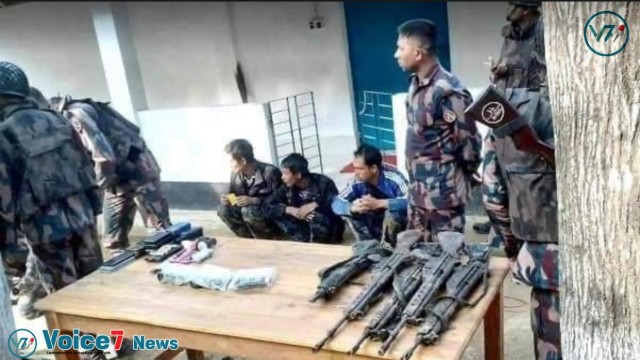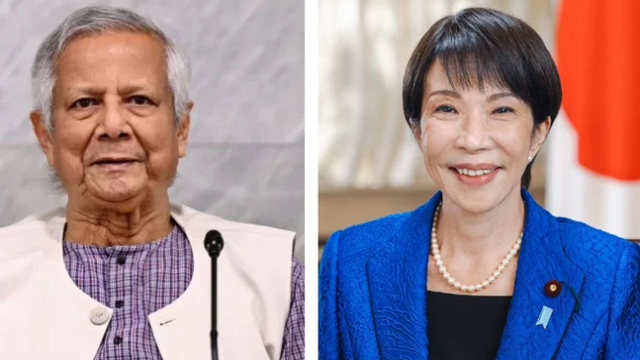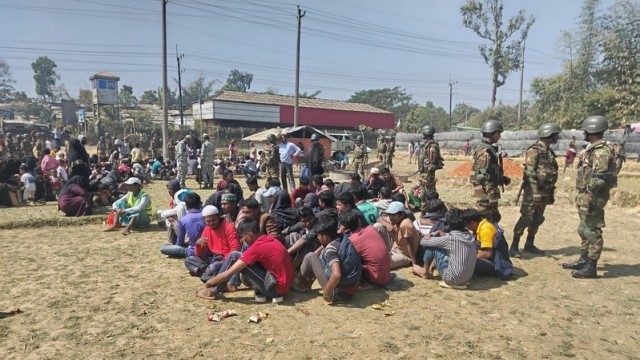Reports surfaced overnight of fierce gunfights between government forces and rebel resistance fighters in Myanmar, and 14 members of the paramilitary Border Guard Police (BGP) sought refuge in Bangladesh.
The BGP's fourteen members left their compatriots.
A Border Guard Bangladesh (BGB) officer informed reporters on Sunday in the southeast of Cox's Bazar, "They are now in our custody."
With their guns in hand, the 14 BGP troops fled to Cox's Bazar to seek sanctuary with their BGB counterparts in the early hours of the Sunday, according to another official who wished to remain anonymous.
Details will be revealed at a media briefing on the situation Sunday, according to a BGB official in Dhaka.
Many mortar rounds and bullets fell inside Bangladesh in the last few days, causing residents in numerous border villages in Bangladesh to flee to safety amid clashes between the government troops and the rebel Arakan Army, even though no casualties were recorded.
A representative of a local union council, the lowest tierl of rural administration, informed reporters that there were two recent occurrences on Saturday night and a mortar shell hit a village home in the Tombru region of the Ghumdhum border and a bullet smashed the windshield of a battery-operated three-wheeler. Fortunately, no one was hurt.
.jpg)
Residents in border communities were alarmed, he claimed, by the sounds of gunfights on Saturday and Sunday.
.jpg)
Due to fighting between government forces and rebel fighters and the Arakan Army's activity in the neighboring Rakhine part of Myanmar, Bangladesh ordered an increase in security measures along its border.
From the northern tripoint with India to the southern Bay of Bengal, Bangladesh's border with Myanmar spans 271 kilometers (168 miles).
Approximately one million Rohingya Muslims, who were persecuted in their Rakhine homeland, migrated to Bangladesh and sought safety here, especially following an army campaign in 2017. However, the present situation is not directly related to the Rohingya population.
Although Dhaka continuously called for the Rohingyas to be returned to their ancestral homes in Rakhine, claiming that they were causing issues with the economy, society, security, and environment, Bangladesh received plaudits for how it handled the worst refugee crisis in history.
The International Court of Justice is currently looking a genocide probe.
End//voice7news.tv































Comment: